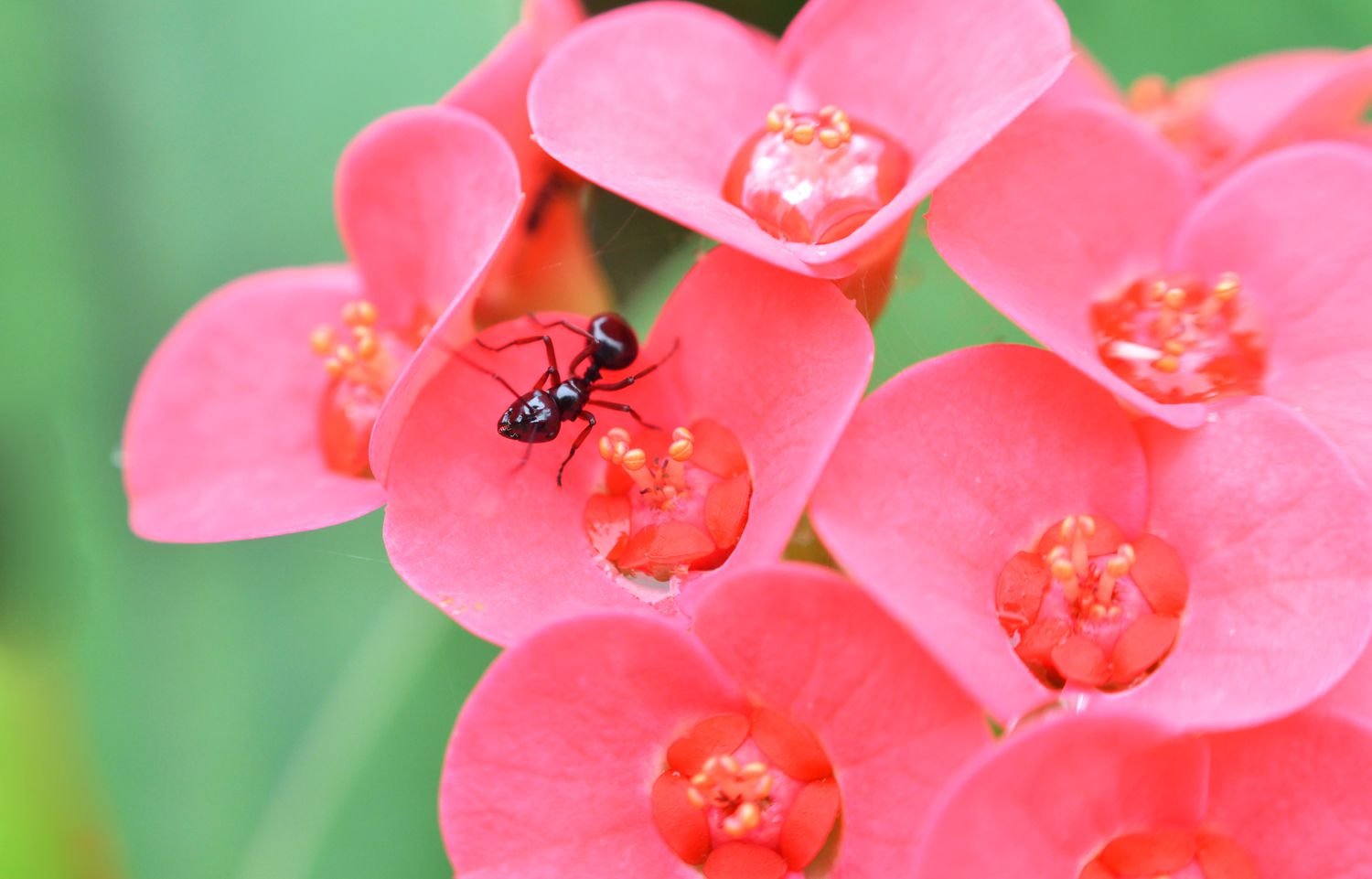From ants migrating indoors in search of shelter to ants being accidentally introduced into your home through newly purchased nursery plants, there are multiple explanations for why ants may suddenly establish colonies in your potted greenery.
We consulted myrmecologists (ant scientists) and professional pest exterminators to gather the most effective and immediate solutions for eliminating ants from your houseplants without causing harm to your plants.
Exploring the Role of Ants in Potted Plants: Are They Harmful or Beneficial?
Ants can serve as useful insects in certain environments, aiding in soil aeration and generally contributing positively to plant health rather than causing damage. However, when ants venture indoors—either in pursuit of food and shelter or by hitchhiking on store-bought plants—they can create complications for your indoor potted plants.
Zach Liu, a myrmecologist at McGill University and owner of Canada Ant Colony, provides insight: “Many houseplants are cultivated or imported from tropical greenhouses, which often serve as ideal habitats for exotic ant species to thrive and multiply.”
In most cases, these ants establish nests within the potting soil or even inside the plant itself, remaining undetected if the colonies are small. As these colonies grow over time, their presence becomes more noticeable, making it seem as though ants have suddenly infested your houseplants without warning.
Step-by-Step Methods for Removing Ants Nesting in Your Potted Plants
The most appropriate ant removal strategy depends on the type of plant you have.
1. Complete Soil Replacement: The Most Direct and Effective Solution
The simplest approach involves removing and replacing the infested soil. To do this:
- Take the affected plant outdoors.
- Carefully extract the plant and discard all the contaminated soil.
- Gently rinse the roots with water to eliminate any remaining ants or eggs.
- Repot the plant using fresh, sterile potting mix.
2. Encouraging Ants to Vacate Naturally by Altering Soil Conditions
If your plant can tolerate temporary stress, you can manipulate soil moisture to drive ants away.
Liu advises: “For resilient plants that can endure harsh conditions, allowing the soil to dry out completely or briefly waterlogging it can make the environment unsuitable for ants.”
Both methods disrupt the ants’ habitat, prompting them to abandon the pot in search of a more stable nesting site.
Proactive Strategies to Prevent Ants from Nesting in Your Potted Plants in the Future
1. Introducing Beneficial Insects to Control Ant Populations Naturally
This method is particularly effective for outdoor potted plants placed on patios or in gardens. According to Allan Bossel, operations expert at Bed Bug Exterminator, predatory insects such as ladybugs, hoverflies, and their larvae feed on aphids—a primary food source for ants.
“By eliminating their preferred food supply, you make your potted plants far less attractive to invading ants,” he explains.
2. Applying Natural Oils as a Safe and Eco-Friendly Ant Repellent
Certain essential oils can deter ants without harming plants.
Bossel recommends: “Neem oil is highly effective, but tea tree, peppermint, and citrus oils also work well as natural ant repellents.”
However, since these oils degrade quickly, consistent reapplication is necessary for long-term prevention.
3. Avoiding Overwatering to Reduce Moisture-Based Ant Attraction
Excessively damp soil not only risks root rot but also attracts moisture-loving ants. Bossel emphasizes the importance of proper drainage—using pots with holes at the bottom ensures excess water escapes, making the soil less inviting to ants.
4. Selecting Ant-Resistant Soil Mixes to Discourage Nesting Behavior
Ants exhibit strong preferences for certain soil types.
“Most soil-dwelling ants favor dense, clay-heavy soils because they retain structure, allowing for easy tunnel construction,” Liu states.
Opting for looser, well-draining soil mixes (without clay) can help deter ants—though plant health should always take priority over pest prevention.
“Never compromise your plant’s growing conditions solely to avoid ants,” Liu cautions.
5. Elevating Potted Plants to Minimize Ground Contact and Ant Access
A simple yet effective deterrent is keeping potted plants elevated.
Daniel Baldwin, a board-certified entomologist at Hawx Pest Control, explains: “Direct ground contact makes pots more vulnerable to ant infestations. Placing them on bricks, stands, or outdoor furniture creates a physical barrier.”
6. Incorporating Ant-Repelling Companion Plants for Natural Deterrence
Some plants naturally repel ants due to their strong fragrances. Baldwin suggests:
“Lavender, mint, and rosemary not only deter ants but can also enhance the growth of neighboring plants when used as companions.”
7. Maintaining a Clean Garden Space to Eliminate Ant Food Sources
Regularly clearing dead leaves, decaying organic matter, and food waste near potted plants reduces ant attraction. Baldwin notes that garbage, in particular, acts as a magnet for foraging ants.
8. Sealing Home Entry Points to Block Indoor Ant Infestations at the Source
While labor-intensive, sealing cracks in walls, window frames, and doorways is the most reliable way to prevent ants from entering your home in the first place.
Frequently Asked Questions About Managing Ants in Potted Plants
How Can You Remove Ants Without Damaging Your Plants?
Soil replacement is the safest method—removing all infested soil, rinsing roots, and repotting ensures no ants or eggs remain.
Do Coffee Grounds Actually Repel Ants?
No. Liu clarifies: “This is a common myth. For reliable ant control, use the scientifically supported methods listed above.”
Which Natural Scents Are Most Effective at Keeping Ants Away?
Ants dislike strong odors. Bossel suggests: “Cinnamon, peppermint, vinegar, and citrus can help, but their effects are temporary and require frequent reapplication.”

